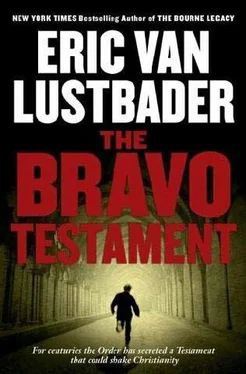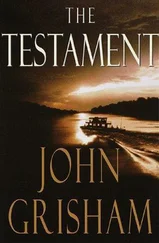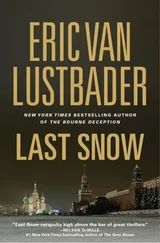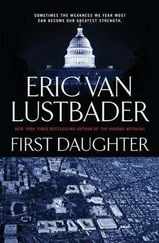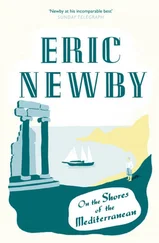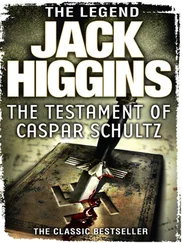"It's not logical, of course," Rossi said as they sped west. The highway was filled with cars, trucks, SUVs, limitless possibilities. With a familiar burst of exhilaration, he was aware of what his life in the Voire Dei had given him. It had legitimized his natural instincts; instead of running from the law, he and Donatella were beyond it, immune. Only another member of the Voire Dei could understand what he was and oppose him, but with the death of Dexter Shaw there was no one left for him to fear, certainly not this Guardian and her hapless charge.
"But what would you expect of her," he said, "once you take into consideration what's on her mind every day and every night?"
"A weakness that will prove their downfall." Donatella smoothly upshifted and accelerated. On a mission, she felt the world open to her like a flower, and she was happy. In the dead spaces between, she starved herself sexually, suffered from insomnia and bit her nails until the quicks bled. At those times, there was no emotion in her but pain, and none other that she could imagine. Now, however, purpose hummed inside her like a hive of bees, and she felt that there was no pain, no deterrent capable of stopping her or even giving her pause.
The cemetery spread out all around Jenny and Bravo, a vast, hushed, peaceful city of the dead-lush and green, smelling of new-mown grass, loosestrife and wild onion. There was a respite of sorts in the deep shade of the old oaks, hawthorns and Virginia pines. Birds flittered among the heavily laden branches and the drone of insects was everywhere. Directly behind them were the gates to Miamonides Cemetery, and on their left, to the south, was the larger, more imposing National Memorial Cemetery.
Jenny led them at a fast clip down a paved walkway between two rows of squat stone mausoleums-a necropolis gleaming dully in dappled sunlight.
As if at last making up her mind, she stopped abruptly and turned to him, engaging his eyes with her own. "Listen to me, Bravo, I need to tell you something. Your father was killed by an explosive charge."
Bravo felt something clench painfully in his belly. "But the police said that it was a gas leak." All at once he felt dizzy. "They assured me it was an accident."
"That's just what they-and you-were meant to believe." Jenny stared at him for a moment, unblinking. "But his death was no accident. Dexter Shaw was murdered."
"How do you know that?" He was aware that his voice was harsh, almost antagonistic. He didn't want to believe her. Of course he didn't want to believe her.
"Dexter Shaw was a member of the Haute Cour-the inner circle, the leaders of the Order. Over the past fifteen days, five members of the Haute Cour have been killed-one choked to death on a fish bone, another was a victim of a hit-and-run incident. The third fell-or rather was pushed-from the balcony of his twentieth-floor apartment, and the fourth drowned while he was boating. Your father was the fifth."
Bravo followed her account with a sense of mounting horror, and all at once a memory flooded through him. "I want to make you an offer," Dexter Shaw had said in characteristically cryptic fashion. "Remember your old training?" This bit of the last conversation he'd had with his father stuck in his mind like a moth pinned to a lepidopterist's table. She was right, and he knew it. Of course. He'd known it, he realized with a start, from the instant she had said it. It was as if the multiple shocks of his father's death, his sister's maiming, his own concussion had caused a latent instinct to arise in him-a long-held sense of danger, conspiracy, secrets, a sense of a hidden world he'd inherited from his father.
They had begun to walk again, urged by Jenny, as if she knew that movement-even of the most pedestrian sort-was what he needed most now.
"Breathe, Bravo," she said to him softly, kindly, as she observed him. "You'll feel better the more deeply you breathe."
He did as she said and in the process felt keenly a sensation of being in her hands. It was not altogether unpleasant, for he was in the midst of a dawning realization that ever since he'd awoken in the hospital his world was changed forever. Sometime during his state of utter unconsciousness he'd entered an unknown territory. Suddenly alone, he was grappling to come to terms with a new world order of which he had no knowledge.
"I need some answers," he said. "From my studies, I know that the Gnostic Observatines were a supposedly heretical sub-order of the Franciscan Observatines, who broke with both the traditionalists and the mainliners. Is it still a religious order? And what about you? I was under the impression that the Order was strictly male."
"Once it was," Jenny said. "And believe me, there are those in the Order who wish it was still, who bear me nothing but ill will. We will get to them in time, but for the moment, to answer your first question, the Order is now apostate, we've moved out of the strictly religious sphere."
"Why?"
"Once, religion was the law, the supreme power in the world, but gradually that power eroded, ceded to kings, warlords, parliaments and presidents. As religion's power waned, the Order moved with the times, into the power centers of the secular world. We became businessmen and politicians.
"And all the while, we followed the Knights, whose mission it was to keep power concentrated in as few hands as possible: the Kaiser, Hitler, Mussolini, you get the picture."
"Are you telling me that the Knights of St. Clement were behind-"
"They certainly played their part, they greased the wheels, and we-the Order-did our part to stop them, to ensure the democratization of power. This is the essence of the clandestine world-we still call it by its ancient name, the Voire Dei, the Truth of God-in which we operate, Bravo."
"But if the Order is no longer religious in nature, what has it become?"
"Through the 1940s, we kept Hitler mesmerized with a blizzard of astrological charts from which he made every wrong decision he could make, overextending his army in Russia and Western Europe. We kept the Nazis from learning about the Manhattan Project, despite Werner Heisenberg's work as Director of the Kaiser Wilhelm Institute for Physics in Berlin. In 1945, members of the Order spoke to Harry Truman to ensure the atomic bombing stopped at Hiroshima and Nagasaki. Since then, we have strived to limit the proliferation of nuclear weapons. In 1962, one of us met with Nikita Khrushchev in a dacha outside Moscow and persuaded him to back off his stand on Cuba.
"Through economic means, we spent a decade ensuring the fall of Communism and the breakup of the USSR. Today, we work continuously in Africa to stop the spread of disease, in Eastern Europe to keep governments stable, in Western Europe and Asia to educate Mamies, to try to protect them from the desperate measures of terrorism. Extremism catches hold when all hope is gone, when a human being has been stripped of everything except hatred. We do all this behind the scenes, otherwise we'd continuously be under attack by the Knights. Sometimes we're not successful or only partially successful-the onrush of world events is sometimes overwhelming. But with the original mission St. Francis gave us to travel the world to do good, to keep nothing for ourselves, we have persevered. Until now, when the entire world is threatened, when at any moment it might come under the thumb of the Knights of St. Clement."
She turned, and together they hurried down the path, a narrow aisle between the granite gravestones and polished marble mausoleum walls.
"The secrets in the cache are our power," she continued. "At first, they were the schemes of kings, merchant-princes, cardinals to murder their rivals, to corner the Dutch commodities markets that we ourselves created in the seventeenth century. Later on, plots by governments to back this dictator, assassinate that one, to wage war and then, afterward, award the plum contracts for infrastructure rebuilding to companies who contributed to their election; backdoor politics that distributed aid sent to poor countries into the hands of political leaders who needed it least. Embezzlement, coercion, treason, shall I keep going? The under-the-table deals between businesses to wipe out rivals, the embezzlement of funds, the breaches of fiduciary trusts, the venality of those at the top of the ladder of power. All the injustices man commits against his fellow man.
Читать дальше
